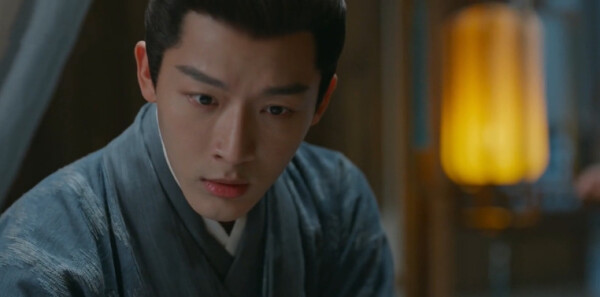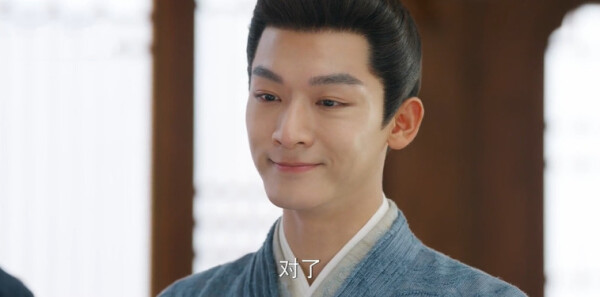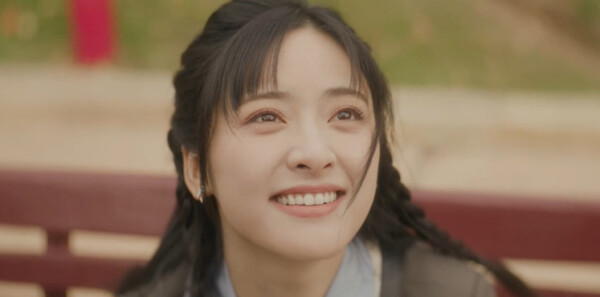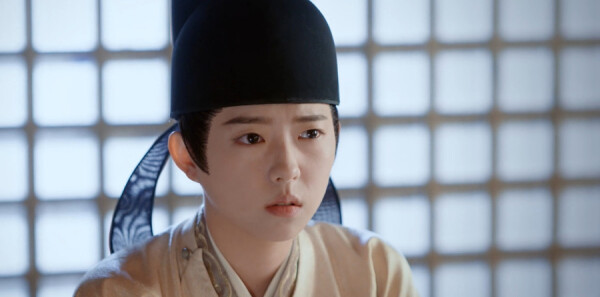中国文化掠影《读书笔记 (持续更新)》
- 书评
- 2023-03-26 09:39:16
- 82
Glimpses of chinese culture 中国文化掠影
Preface
The global integration has brought China closer to the rest of the world. With the frequent exchanges between China and other countries on recent years more and more foreigners are eager to have a better understanding of the culture of mysterious China. Glimpses of Chinese Culture is designed for this purpose
全球一体化 the global integration
中国与其他国家交流日益频繁 the frequent exchanges of china and other countries
渴望对。。。有更好的理解 be eager to have a better understanding of…
中国文化一瞥/略影 Glimpses of Chinese Culture
Instead of elaborating on the complicated Chinese history and culture the book in the form of short essays describes the most gorgeous episodes in the long history of China for readers
The subjects are presented in a way that is fresh and vivid. Even readers without prior knowledge of Chinese culture will find it easy to delve into China’s long history of five thousand years and to understand contemporary China from the historical perspective.
详细阐释中国的历史和文化 elaborate the Chinese history and culture
以短小散文的形式 in the form of short essays
为读者描述中国历史上最辉煌的饿时期
Describe the most gorgeous episodes in the Chinese history for the readers
以新鲜和生动的形式呈现 be presented in a way that is fresh and vivid
有基础知识 with prior knowledge
很容易研究中国的悠长历史 be easy to delve into china’s long history
Delve into sth= investigate 调查/研究
The book provide for foreign readers a shortcut to Chinese culture it’s highly readable language makes itself a good reader for university and high schools students who desire to improve English and translation skills
为外国人了解中国文化提供了捷径 provide for foreigners a shortcut to Chinese culture
渴望提高英语能力和翻译技巧的大中学学生 the students in Universities and high schools who desire to improve their English and translation skills
The first edition of the book comes in both Chinese and English which has gained popularity among readers. With author’s revision and new contents and pictures the present second edition will enable foreign readers to have an intuitive understanding of Chinese culture
一版/再版 the first edition/ the second edition
在读者中广受欢迎 gain popularity among readers
A chronological Table of Chinese History 中国遍年史表
夏商周(西周/东周/春秋/战国)秦 汉(西汉/东汉)三国(魏/蜀/吴)
西晋/东晋 十六国 南北朝(南朝 宋/金/梁/陈 北朝 北魏/东魏/北齐/西魏/北周) 隋 唐 五代十国 宋 辽 西夏 金 元明 清
1. Beginning of Chinese Culture
The Chinese people are proud of their long history About 5000 years ago Huang di the Yellow Emperor according to legend ruled part of the Yellow River valley. He and another leader Yandi or the Fiery Emperor made great contributions to the progress of civilization Huang di is said to have invented cart the boat the clothes the sc
奉为先祖 regard Yan and Huang di as their earliest ancestors
自称为炎黄子孙 call themselves as the Yan/Huang descendents
Many many years after them Yan Shun and Yu led the people one after another. Yu was popular and prestigious for legend has it that he had tamed the flooding rivers by channeling their waters into the sea . Upon his death Yu was succeeded by his son Qi. Thus the first dynasty in Chinese history was founded. It was called the Xia. This event was marked the change from the primitive society where there was no family private property or class distinction to a class society ba
大禹之子继承父位,开创了中国第一个王朝-夏,也标志着从无阶级,无私有财产的原始社会到有家庭有私有制的阶级社会的转变
以疏导的方法制服洪水 tame the flooding rivers by channeling the waters into sea
由儿子继位 be succeeded by his son
标志了从。。。到。。。的转变 mark the change from …to …
以家庭和私有制为基础的阶级社会 the class society ba
The Xia which lasted about 400 years was overthrown by Shang a state in the east. The Shang dynasty was to rule the middle and lower reaches of the Yellow River for about 500 years before it was replaced by the Zhou.
夏朝延续了400年,被商(一个东部的国家)推翻,商延续了500多年,期间统治了黄河的中下游,之后又被周取代
被。。。颠覆/推翻 be overthrown by…
It should be noted that Chinese history before the Shang dynasty though recorded in several ancient classics is mainly legendary. So farm no material evidence has been discovered to prove that Huangdi Yao Shun Yu and the Xia dynasty really existed. However the existence of the Shang has been proved by the oracle bones and other things unearthed in Anyang County Henan Province about a century ago. Acoording to recent research the Xia was founded in about 2070 BC and the Shang in 1600BC
值得注意的一点是 It should be noted that…
中国商以前的历史多带有传奇色彩,因为没有实物加以证实
The history before Shang is mainly legendary without material evidences
甲骨文 oracle bones (商)
The Shang rulers were superstitious. Before they made an important decision they would ask their court diviner to discover if the occasion was favourable. He would take an ox bone or a tortoise shell drill a hole in it and put it over a fire until cracks developed Then he would study the cracks from which he could foretell whether the action considered would have good or bad results. Both the conclusion he drew from the cracks and the real result of the action if it was performed would be recorded in a few words on the bone or shell. In this way the Shang diviners wrote faithful accounts of many important events of their time
商朝的统治者迷信 the Shang rulers superstitious
宫廷占卜师 court diviners
公牛骨头/乌龟壳 ox bones/ tortoise shell 出现裂纹 the cracks developed
预言一个行动将有好的或坏的结果 foretell whether an action considered would have a good or bad result
对重大事件作忠实的记录 make faithful accounts of important events
Over the years about 1000000 pieces of oracle bones have been discovered and collected in Anyang. The place was certainly one of the capitals probably the last one of the Shang which moved its capital several times. Over 3000 different words have been found on those bones indicating that written Chinese was already highly developed more than 3000 years ago.
The Shang ruled over a slave society. Slaves most of whom had been captured in battles with other states or tribes were forced to till the land and do household work for their masters. What was more tragic was that slaves might be killed as sacrifices to the gods and their master’s ancestors and might even be buried alive to accompany their masters when he died.
商朝统治着奴隶社会 rule over a slave society
奴隶可被用来祭祀神灵 be killed to sacrifice the gods
被活埋以陪葬 be buried alive to accompany their masters
During the 11th century BC probably in 1046 BC the Shang Dynasty was conquered by Zhou a state in the Wei River valley in present-day Shanxi Province. King Wen of Zhou had made his state strong and planned the conquest. A few years after his deathhis son king of Wu led an army in an attack on the Shang capital and quickly defeated the Shang troops. King Wu become the first King of the New Zhou dynasty
When Kinf Wu died his son was still too young to rule the country so for several years state affairs were directed by Wu’s younger brother the Duke of Zhou. The political and social systems of the new dynasty were mainly designed by these three founders King Wen King Wu and the Duke of Zhou
周文帝/周武帝 战胜商部队,成立周王朝
They established a feudal fief system. The whole country was divided into a number of areas each of which was assigned to a member of the royal family or a noble related by marriage to the rulers or to the chief or a small state that has been loyal to the Zhou. Not only land but the people on it were given to sucha man and became his and his descendents’ property. This man subdivided his fief into several areas and gave them to members of his family and their descendents. They in turn gave land and people to those under them . It is said that altogether there were ten classes in this sytem each class having to pay tribute and offer military and other services to the one above
由上到下采取封邑制 assign the land and the people on it to the family members or the noble related to by marriage to the rulers 与统治者联姻 noble being related to the rulers by marriage
向上一级进奉和服役 pay tribute and offer military and other services the one above
At the top of this social ladder was the king the master of all people and land alike. At the bottom was the serf bound to the land. He had to work his lord’s land before attending to his own small field and was not allowed to move out of his Lord’s fief When there was a war he had to go and fight. When his lord needed a women his wife or daughter might be taken away. In short his lot was like that of a slave but was a little better for he had a small piece of land a home and a family and some tools
商朝社会登记的最高层是皇帝,是所有人的主人,最底层是农奴Serf
他们的命运稍好于奴隶
The Zhou rulers used two means to maintain law and order severe punishments to keep the serf and common people obedient and rites to adjust relations among the nobles. The rites were rules of behavior and conduct regulations of ceremonies and social institutions The basic principle was that the rites should never apply to the common people and punishments should never apply to the nobles.
These systems and institutions suited the social conditions very well and the Zhou enjoyed peace and stability for about 300 years. Then in 771 BC natural calamities internal struggles in the court and attacks by border tribes brought Zhou rule to the brink of collapse. In the following year he capital had to be moved from Haojing on the west to Luoyang to its east From then on the dynasty was called the Eastern Zhou and the period from 1046 to 771 BC the Western Zhou
用两种方法维持法律和秩序 use two means to maintain law and order
对农奴和老百姓的严厉惩罚以保持其顺服性
Severe punishments applied to serf and common people to keep them obedient
对贵族实施礼仪(行为规范准则)the rites applied to nobles(regulations of behavior and conduct)
自然灾害/朝廷内部斗争/边境部落攻击
natural calamities/ court internal struggles/attacks by border tribes
使。。。面临崩溃的边缘 bring sth to the brink of collapse
西周(1046-771 BC)迁都为东周
The history of the Eastern Zhou was divided into two periods. The first 300 years was called the Spring and Autumn period because all important events of his period were recorded in a historical work called the Spring and Autumn Annals The period from 475 to 221 BC was called the Warring States Period. The dynasty was finally brought to an end in 256 BC and 35 years later in 221 BC China was unified by the Qin Dynasty.
东周可以分为春秋和战国两个时期
春秋 Spring and Autumn Period 战国 Warring States Period
《春秋》Spring and Autumn Annals
公元前221年,秦统一中国 China was unified by Qin in 221 BC
During the Spring and Autumn and Warring States Periods the king was the ruler and the master of the country in name only He was weak in every way and unable to control the nobles who had large fiefs. The area under his direct rule was becoming smaller and smaller as a result of invasions by nobles who were no longer loyal to him Powerful states often tried to occupy the land of weaker ones and they fought each other to increase their influence. As wars went on the number of states was reduces from over 1000 during the Western Zhou to about 100 during the Spring and Autumn Perios and to about 20 at the beginning of the Warring States Period
春秋战国时期,国王只是名义上的统治者,实际上受到拥有大量封地的贵族的控制,战争连绵,国家数量锐减,从西周的1000个减到春秋的100个,到战国只剩下20个
扩大影响 increase the influence 只是名义上的君主 the rulers and master in the name only
There were great social changes too. The increasing use of iron tools helped to develop agriculture. Landowners came to realize that they could get more from their land than the old serf system if it was turned into plots and rented to their serfs. Gradually their common fields ields formerly tilled by their serfs without pay became private fields leased out to their serfs for rent. Thus serf-owners became in effect landowners and serfs became tenants who showed great interes in production and enjoyes greater independence and freedom than they had as serfs
出租土地, 农奴成为佃户/农奴主成为地主
Lease out the land the serfs turned into tenants and the serf-owners into landowners
Along with the development of agriculture handicrafts and commerce also grew and there appeared a new merchant class. Many merchants were rich enough to visit and bribe princes dukes
Another group of people scholars also developed. These came from different classes. Before the Spring and Autumn Period what learing there was had been monopolized by the nobles they alone could use the books and documents stored by the government and other people could not share this right The great political and social changes during the Spring and Autumn and Warring States States Periods broke the monopoly of learning by the nobles At all levels of society declining nobles new landlords free citizens even poor people there were people who made an effort to study and turn themselves into scholars. When rulers of states wanted to wise advices that would help them to make their states rich and strong they turned to scholars for such help and often put them to important positions
春秋战国时期 百家争鸣
学者不一定是贵族,可以是落魄贵族/新地主/自由平民/穷人(学习不再是贵族的专利)
Not monopolized by nobles
all levels of society(declining nobles/new landlords/free citizens/poor people)
The Spring and Autumn and Warring States Periods were thus a time of change. States expanded or were conquered. The old systems and institutions established in the Western Zhou were no longer observed. The rites and original social order were broken This turbulent situation urged scholars of the way to think of ways to bring about peace and stability or to make a state rich and strong. Some of them went a step further to study fundamental principles of the universe and human life. Therefore these two periods especially the Warring States Period saw the rise of many different schools of philosophy. It was a period when as people often say a hundred schools of thought contended
春秋战国时期诗歌充满变化的时期
西周时期建立的旧制度和旧体系不复存在
The old systems and institutions established in Western Zhou were no longer to observe
动荡的局势迫使学者们思考创造和平稳定的方法
The turbulent situation urged the scholars to think of ways to bring about peace and stability
进一步研究宇宙和人生的根本准则 go a step further to study the fundamental principles of universe and human life
战国时期见证了不同哲学学派的繁荣 the Warring States Period saw the rise of different schools of philosophy
所谓之“百家争鸣” as people often say hundred schools of thought contended
2. Confucious The first private teacher in Chinese history
The first and most important scholar of the Spring and Autumn Period was Confucious. He was born in the state of Lu in present Shandong Province in 551 BC. His surname was Kong Qiu was his given name and Zhongni his courtesy name.According to legend before his birth his parents had prayed to the god of Mount Niqiu for a son so they called him Qiu and Zhongni Confucious is his Lantinized name which has been used in the West ever since he was known abroad
春秋时期最重要的学者是孔子 孔子姓孔名丘,字仲尼
The most important scholar during Spring and Autumn Period
Surname is Kong given name is Qiu courtesy name is Zhongni
在西方自孔子被知晓以来为拉丁名 Latinized Name Confucious
Confucious was only three years old when his father a noble man of the lowest rank died. In Qufu the capital of Lu mother and son led a hard life. Young Conficious showed a great interest in study and his mother did everything to encourage them.But she did not live to see her son established as a scholar and dided when he was 16 or 17
Later recalling his own earlier days Confucious said At 15 made up my mind to study at 30 I was established. It appears that he had in his youth studied what classics there were to study and formed his own conclusions and views on the most important problems of history society and mankind. From then on his main goal was to practice and spread his views and in so doing to bring light to people who were groping in darkness for the right ways of life.
吾十有五,而志于学,三十而立,四十而不惑,五十而知天命,六十而耳顺,七十而从新所欲,不逾矩
At 15 I made up my mind to study
At 30 I was established
At 40 I felt not confused
At 50 I knew my own destiny
At 60 I can distinguish right from wrong according to the sounds
At 70 I can behave following my desire yet never beyond the rules
The method he adopted was education. He gace his instruction to all who came to learn from him. By then a well-known scholar he set up a sort of private school. This was an event of great historic significance. Before Confucious only the children of nobles had the right to education while ordinary people were kept illiterate Confucious was the first person in Chinese history to bring education to all people ans in particular to those of ordinary birth
采取教育的方法 adopt a method education
设立私塾 set a sort of private school
平民不再是文盲,普通出生的孩子也接受教育
The ordinary people who were kept illiterate also receive education
From the age of about 30 to his death at 73 he never stopped teaching. It was said hat aaltogether he taught about 3000 students 72 of who had outstanding achievements in the academic or political field
传说孔子笛子三千,有所成者72
72 of the students had outstanding achievements in academic or political field
His influence increased with the number of his students and the rulers of lU came to realize that it might be proper to make him an official in the government. For a few years he helped to govern the state and his work brought about good results. But those nobles who had real control of the government did not like his measures they made it difficult for him to carry out his ideals. So he decided to leave. He was then 55 years old
身为官员 be an official in the government
智力国家,卓有成效 govern the state and bring about good achievements
实现抱负carry out ideals
During the next 14 years accompanied by several faithful students he visited ten states and talked with the rulers of six of them trying to convince them of the necessity of human government and hoping that his principles would be put into practice. But none of the rulers were interested in his views. As they were all anxious to make their states rich and strong humane government must have sounded to them too abstract and impractical to be adopted
空子游说诸君,实施仁政 try to convince of the rulers to carry out human government
During his absence a new generation of nobles had come into power in Lu. At their invitation Confucious returned home when he was 68 years old. In his last years he did not worl in the government but devoted his time to teaching and ending the classics. In 479 BC when he was 73 he fell ill and died.
Confucious did not write any books.In his time it was not yet the custom for a man to write for publication The Classics he edited were made up of government documents and historical records handed down from earlier times and folk songs specially collected over the ages. Moreover Confucious himself preferred explaining ancient principles to creating new theories
晚年 孔子被请回鲁国,但是不再从政,专心著述
Fortunately there is a book which expresses Confucious views and theories more directly and clearly than those classics he edited.It is The Annalects of Confucious a collection of about 500 sayings of Confucious and his major disciplines and they were recorded and complied by those students who had heard Confucious talking and his disciplines discussing the master’s teachings. The 500 sayings deal with a wide range of topics humanity and rites government and law education and knowledge music and poetry the qualities of gentlemen and the weakness of mean men. In addition there are a few brief desc
孔子语录 论语 收集了500多条语录,由其弟子记录和收集
The Analects of Confucious
涉猎广泛,人性和礼仪,***和法律,教育和知识,音乐和诗歌,君子品质和小人缺陷
Cover/deal with a wide a range of topics
Humanity and rites government and law education and knowledge music and poetry
Qualities of gentlemen and weakness of mean men
Confucious said If I learned the way in the morning I would die contently in the evening
This saying expresses his love for and the eagerness to seek the truth which is what the Way roughly means. He spent all his life studying spreading and promoting the Way. To him the Way was life or the thing he lived for. He put forward a series of theories about man life society and government. Together they formed his Way
孔子言 朝闻道,夕死可矣 If I learned the Way in the morning I can die contently in the evening
Way is a general concept including a series of theories about man life society and government
提出 point pout/ put forward
As we know the ruling class of his day was greedy and ambitious cruel and oppressive the common people n the other hand lived in great misery bound hand and foot by harsh laws unjust traditions and lind faith in Heaven ghosts and fate. Confucious was determined to save mankind from this tragic condition by means of reason.. He wanted to awaken all people to a correct understanding of the nature of man and the right way to be a man . For this purpose he stressed the importance of man’s moral nature
统治阶层贪婪野心勃勃,残忍而压迫人民,老百姓生活悲惨,受苛政的压迫,不公的传统和盲目信仰的欺凌
The ruling class is greedy and ambitious cruel and oppressive
The common people live in misery being oppressed by harsh laws unjust traditions and blind faith
决心拯救人类于悲惨之境 be determined to save te mankind from the tragic condition
晓之以理 by means of reason
强调人类道德良知的重要性 stress the importance of man’s moral nature
To be a human is to be a man he said this saying may mean that humanity or humaneness is the fundamental quality of man and that it is this quality that makes a man a true man It may also mean that without this quality man is not a real man
As man has a moral nature to adhere to moral principles should be everyone’s first consideration.Mora principles are more important than all other things including positionsn wealth even life. Confucious said wealth and high position are desired by all men but I would not have them if they were not won in the right way. Poverty and low position are hated by all men but I would not leave them if they could be rid of in the right way
Confucious gave very clear explanations to the meaning of humanity it means to love other men to help others to stand up when one wants to stand up oneself and help others to understand things when one wants to understand things oneself and not to impose on others what one does not desire oneself
己所不欲,勿施于人 Don’t impose on others what one does not desire himself
Confucious himself loved other men. At than time when social classed were distinct he accepted students people from all levels of society and taught all of them. Yan Hui for instance was a poor man and the master gave him more praises than any other student.In teaching his students Confucious was in fact helping them to stand up(succeed) and understand things(the truth)
Mencius said Whenever he saw someone drowing Yu felt as if he had been the cause whenever he saw someone hungry Ji felt as if he had been the cause He who has this feeling is a humane man
Humanity is the supereme principle.To realize it one should if necessary give up everything else including life itself. Confucious said A determind or humane man never gives up humanity to save his life but he may sacrifice his life to realiz humanity
In connection with humanity Confucious mentioned many other virtues such as rightness propriety wisdom trustworthiness loyalty forbearance filial piety brotherly love. He called a man who had virtues a gentleman and a man who was not virtuous a mean man. A virtuous man is always open and sincere ready to help other men free from worries and fears and at peace with himself and the world. He was describing such a man when he praised yanHui Hui is a perfect man No one else could bear his hardships living in a poor hut with only a bowl of food and gourd of water but he is happy. Hui is a perfect man
空子认为热还应该具有的品质 正义 光明磊落 智慧 值得信赖 忠诚 忍耐 孝道 手足情谊
A virtuous man shoulb have rightness propriety wisdom trustworthiness loyalty forbearance filial piety and brotherly love
As to the way to govern a state Confucious urged rule by virtue and humane government. He was against the use of harsh laws and severe punishments which were common in those days Repressive measures according to hm would only make the common people try hard to avoid punishments and would not help them to distinguish between right and wrong or give them a sense of shame . He held that the ruler himself should be an upright man and should guide the common people with virtue and regulate their conduct and behavior with rites which were standards of behavior laid down by the rulers of the Western Zhou. He also urged putting only virtuous and talented people to government positions
反对苛政和严惩 be against harsh law and severe punishment
辨认好坏,知道羞耻 distinguish between good and wrong have a sense of shame
唯贤是举 put only virtuous and talented people to government positions
What humane government means is made clear in one of his talks Educate the dense population when they are rich
So the people should be made rich and then educated. This should be a good principle even today for it covers both material and spiritual civilization. They have to be developed at the same time to ensure the stability of the state and the happiness of people. What great wisdom is shown in this political view
先富裕在教育 实现物质和精神的双重文明
Make people to be rich firstly then educate them cover the material and spiritual civilization
Confucious was China;s first educator and no doubt one of the world’s first educators. A teacher all his *** life he not only set up a school but also developed significant educational principles and methods of teaching
I teach everyone without making distinctions He said This was really an epoch-making declaration for it was an open rebellion against the tradition that education was for the nobles only. By bringing education to the common people he made an immeasurable contribution to the development of Chinese Culture
我一视同仁得教授知识 I teach everyone without distinction
一个跨时代的宣言 a epoch-making declaration
对旧传统的公然反抗 an open rebellion against old traditions
对。。。作出了巨大的贡献 make an immeasurable contribution to
To confucious all men were educable because men had a similar nature By nature men are pretty alike he said but learning and practice set them apart This statement which opposed the common view of his day that the nobles were born superior to the common people expressed his belief in equality
人生来天性相似,后天的学习使人们习性相远
The nature of people are born pretty alike but the learning and practice set them apart
贵族天生凌驾于普通百姓之上 the nobles are born superior to the common people
Confucious had a clear aim in educating his students he expected them to be virtuous to understand man and society to have a good knowledge of the past and a clear vision of the future and to devote themselves to the spreading and carrying out of the Way. He did not wish them to become experts in particular fields So when one of his students asked to be taught how to grow crops he criticized the dtudent and called him a mean man This dislike of specific skills was of course not helpful to the development of science in China
孔子喜欢说教,不喜欢具体领域的具体知识,有碍于中国科技的发展
Dislike of specific skills hinder the development of science in China
Confucious’ main teaching method was conversation or question and answer. Sometimes a student would come to him with a question and he would give him a clear answer.Sometimes a student would express a view and the master would comment on it. Sometimes the master would start a conversation with a student to explain a theory to him or direct his attention to a question or point out the way forward for him. Occasionally the master might talk with more than two students at the same time.The ***ects is full of records of such conversations
In his conversation with his students Confucious often commented on real events and people and took into consideration the needs of the listeners. He might give different answers to the same questions asked by different students He encouraged his students to learn and think and wanred them not to learn without thinking or thinking without learning. He said He who learns without learning will be in danger.
Confucious and his students had very close relationship.They were united on the basis of the Way to achieve which was their common goal. For this reason Confucious cared for and loved his students always ready to answer their questions and give them the guidance they needed. His students in return were loyal and respectful to him some of them accompanied him on his journey through the state sharing with him all the difficulties and dangers. It’s only natural that this teacher/student relationship should be taken as a model in later ages
学而不思则惘/思而不学则殆 He who learns without thinking will be bewildered
He who thinks without learning will be in a danger
孔子重视师生情谊 vice versa
Confucious view on the mean on harmony and on knowledge and practive also had a great influence on the thinking of the Chinese People
In 140 BC Emperor Wudi of the Han dynasty decided to make Confucianism the state thought
From then on except a few short periods like the Wei and Jin dynasty Confucainism was the mainstream of Chinese thought for about 2.000years.Its influence was most extensive and penetrating
孔子的思想在中国影响最为深远 The influence of Confucianism is most extensive and penetrating
汉武帝将儒教定为国教 Wudi in Han dynasty decided to make Confucianism state thought
除了历史上少数一个阶段,儒教一直是中国的主流思想
Except a few periods like Wei and Jin dynasty Confucianism is the mainstream of Chinese thought
3. Laozi The Founder of Taoism
Confucianism was as we have mentioned the mainstream of Chinese thought for about 2000 years from the second century BC down to the beginning of the 20th century. The second great influence on Chinese culture was no doubt Taoism which opposed but complemented and enlivened Confucianism
道教是中国第二大思想 Taoism the second great influence on Chinese culture
道教有与儒教相反的地方,但是也补充/活跃了儒教
Oppose but also complement and enliven Confucianism
We know very little about Lao Zi the founder of Taoism. According to the Records of the Grand Historian he was born in the State of Chu in present-day Henan Province a little earlier than Confucius When he saw the decline of the dynasty he left his work to live in seclusion. On his way he reached a gate which he had to go through. The gate keeper by the name of Yin Xi begged him to write a book. Lao Zi agreed and wrote about 5000 words on Dao and De or the Way and its functions.. After than he left and no one knew where he was or when he died
There have been scholars who hold that Lao Zi may have lived in the sixth century BC but the book named after him contains ideas and terms that belonged to a much later period. Like many other Chinese classics the book went through a process of editing and compilation and may have taken the present shape in the fourth century BC in the middle of the Warring States Period
道德经 历经编辑和收编的过程 go through a process of editing and compilation
具有现在的样子 take a present shape
The book is written in verse in very terse language with many lines capable of different interpretations. Countless notes to and commentaries on the book have been written by scholars of the post and present. It has been translated into many foreign languages and modern Chinese. Indeed few books have attracted as much attention and aroused as much interest in China and abroad as this small book.
道德经以诗体写成,语言精练,很多地方可以有不同的注释
Dao and De is written in verse a very terse language with many lines capable of different interpretations
对此书无数的注释和评论 countless notes and commentaries on the book
现代汉语 modern Chinese
As it discusses dao and de the book is called the Dao De Jing but more commonly known as the Lao Zi. The philosophy explained in it is called Taoism for Tao bot Dao was how the Chinese word was represented in the past.
Dao according to Lao Zi gave birth to the universe and make all the things in the universe what they are. In other words it’s the origin of all things and also the law that governs their workings and change. It’s invisible intangible and indescribable. In fact it’s nameless and Dao is only an inadequate name forced on it
道不可道,是宇宙的初试和万物的起源,不可见,不可感知,不可描绘,他是无名的
Dao is nameless invisible intangible indescribable
Gave birth to universe and make all things in the universe what they are the origin of all things
强加的名字 an inadequate name forced on it
As to the laws that governs the development and change of the things in the universe Lao Zi put forward a series of profound views. He holds that things and concepts are relative being and nonbeing produce each other the difficult and easy complement each other the long and the short shape each other the high and the low contain each other and what is before and what is after follow each other. He says when the world recognize the beautiful as beautiful there is the ugly when the world recognizes the good as good there is the bad Of every pair of opposite concepts one produces the other or the existence of one depends on the existence of the other
统治宇宙万物发展和变迁的法则 laws that govern the development and change of things in the universe
提出一系列深刻的见解 put forward a series of profound views
有无相生 being and nonbeing produces each other
任何一对相对的事物,都是一生另一,或者一者的生存有赖于另一者
Every pair of opposite concepts one produces the other the existence of one depends on the other
This theory is not difficult to understand. Perhaps we do not know it’s a philosophy but we apply it in our everyday life. When we say someone is tall for instance we mean that he is taller than many other people or we know many other people are shorter than he is. We understand that tallness and shortness are relative.
From this relativity Lao Zi goes on to draw a very important conclusion Reversion is the Movement of Dao or turning back is how the Way moves. This means that a state or quality has its process of development and when it reaches the extreme it will eventually turn back to its opposite state or quality. In nature and in human society countless examples can be found to prove this theory. Plants animals and human beings grow and grow but one day they will die and disappear. In China and in other countries there were in the past big powerful state led by great leaders or conquerors but all of them collapsed or fell after a period of time
通过相对论,老子得出结论 道就是回归的往复的运动,到了极限,又会走向反面
From relativity Lao Zi draw a conclusion Reversion is the movement of Dao
When a state or quality reached its extreme it will eventually turn back to its opposite
Lao Zi says that an army that is strong will be defeated just as a tree that is strong will be broken. This is perhaps because a strong army is often proud and looks down upon other armies and sooner or later it will be defeated by the joint forces of the armies it has attacked. A tress that is strong is fragile and can easily be broken in a strong wind while a weak tree is supple it blends with the wind but will not be broken. The conclusion drawn from this by Lao Zi is that the soft and weak will overcome the hard and strong and that weakness is the function of Dao
软弱胜刚强 The soft and weak will overcome the hard and strong
Lao Zi also discussed the right way to live behave and handle things. He advises people to be peaceful quiet submissive tolerant modest contended humble to live a simple life not to strive for wealth fame or power which will only give one worries and trouble. Even when one has won great success one had better withdraw from the scene without claiming credit for it He says He does not show himself and so is conspicuous he does not consider himself right and so is famous he does not brag and is so given credit. He is not conceited and so can endure for long. It is just because he does not contend that no one on the world can contend with him He also says To yield is to be preserved to bend is to become straight to be low is to be full to be worn out is to be renewed to have little is to gain to have plenty is to be perplexed
正确的处世接物之道 the right way to live behave and handle
平静, 安宁,顺从,容忍,谦虚 peaceful quiet modest tolerant humble
过简单生活 live a simple life
不要争逐名利和财富 not strive for wealth fame and power
成功退隐而不表功 withdrawn from the scene of success without claiming credit for it
不自大的人可以持久 he who is not conceited can endure long
These sayings also show the truth that a state or quality will turn to its opposite when it reached the extreme. Another similar saying which is widely known is that good fortune may exist beside misfortune and misfortune may hide in good fortune The well-known story about the old man on the frontier losing his horse may be considered a good illustration of this statement. When one of his horse runs away he says that may be a blessing . Soon the horse came back bringing with it another horse. But the old man fears a misfortune may happen. His son who likes riding a horse falls from the new horse and breaks his leg. This turns out to be a blessing when a war breaks out for the son now crippled is not called up to flight in the war
福祸相倚 A good fortune exist beside the misfortune
Misfortune may hide in a good fortune
塞翁失马,焉知非福是对这个论述的很好的阐释
A good illustration of the statement
A man from frontier losing his horse may be a blessing
The horse came back bringing with another horse
Misfortune may happen His son who likes riding fell from the horse and broke the leg
It turned out to be a blessing when a war broke out and for the crippled sonhe’s not called up to flight in the war
瘸腿的儿子没有被应征入伍 the crippled son is not called up to flight in the war
About government and social order Lao Zi is for nonaction. It does not mean inactivity but taking no action that is not natural that is against the original nature and wishes of people. It means letting people and society take their own course without being taught or directed. Lao Zi believes that a state is poorly governed when the rulers does too much. He says the more prohibitions there are in the world the poorer the people will be the more sharp weapons the people have the more troubled the state will be the more skills man possesses the more strange things will appear the more laws and orders are made the more thieves and robbers there will be On the other hand if the ruler takes nonaction the people will be transferred of themselves if he loves tranquility the people will become correct on themselves if he engages in no activity the people will become prosperous of themselves if he has no desire the people will become simple of themselves
倡导无为,无为不是无所作为 advocate nonaction Nonaction does not mean iinactivity
事物顺其自然发展 let things and society take their own course without being taught or directed
自我教化 be transferred of themselves
恬静/宁静 tranquility 打破夜的宁静 break the tranquility of the night
Lao Zi lived in the turbulent years of the Spring and Autumn Period when wars usurpations and intrigues were common. What he wrote about nonaction may have expressed his hatred of the rulers of his day but at the same itme he put forward a very important political view. Many centuries later there was in the West a similar theory The best government is the one that governs least.
Dao invariably takes no action and yet there is nothing left undone
The above four aspects the origin of the universe the workings of all the things in the universe the right way to live and behave and the right way to govern a state are among the most important questions discussed in the book
老子中提到的四个核心问题是 宇宙的根源,宇宙万物的运行,生活和行为的正确方式,统治一个国家的正确方式
It’s clear that Taoism and Confucianism are different in many ways. Confucius holds that moral principles and moral qualities are most important and all social ills result from the lowmoral standard of the ruler and people. A ruler should first of all have a good moral character himself and then try to educate the people and make them virtuous. Only in this way an a state be well governed. But Lao Zi hates to talk about virtues and is against education. In his view knowledge and wisdom humanness and rightness should all be thrown away so as to keep people’s thinking simple and primitive. In his view knowledge and wisdom produce evil ideas and make people think of and do bad things. It is therefore the duty of a good ruler to make his people hove no knowledge or desire
儒教于道教的区别 儒教视道德准则为最重要,所有社会弊端来自道德水平的低下
Confucianism regard moral principles among top priorities
All social ills result from the low moral standard of the ruler
儒教倡导教育使人有品德,道教反对教育,仁义道教应该统统抛弃
Confucianism advocate education and making people virtuous
While Taoism is against education and knowledge knowledge and wisdom humanness and rightness should all be thrown away
Confucius took the Western Zhou as a time with the ideal social and political systems which he wished to restore Lao Zi’s ideal time is a primitive one in it people do not use written language do not use ships carts or weapons and live in very small states the sound of dogs barking and cocks crowing in one state can be heard in another but the people of one state will grow old and die without having had any contact with those of another
孔子的理想国是西周时期,他希望重振
老子的理想时期是原始社会的,狗吠鸡啼,老死不相往来
Confucius hopes that society will be peaceful and orderly as a result of the conscious effort of the ruler and the people both of whom value moral principles and knowledge Lao Zi also dreams of a peaceful and orderly society but that is possible only when the people return to a primitive simplicity while the ruler does nothing to meddle in their natural way of life. Perhaps Confucius is realistic while Lao Zi is romantic.
两者都希望社会平静有序 wishing the society peaceful and orderly
儒教通过下意识的努力来实现这个目标 conscious efforts
道教则通过回归原始的自然来实现 return to the primitive simplicity
要求统治者不干涉自然的生活方式 does not meddle in the natural way of life
儒教的处世方式是现实的,老子的是浪漫的
Confucius is realistic while Lao Zi is romantic
Over the ages Lao Zi’s influence wae clear on many scholars poets artists even government officials. Tao Qian for instance would rather return to his village to lead the life of a farmer than serve as an official. One of his poems says I was in a cage for a long time but I have returned to nature
老子的思想影响了很多学者 包括陶潜 弃官回乡
rather lead the life of a farmer than serve as an official
The famous Poet Li Bai wrote many poems in praise of nature and freedom. One of them says When I am asked why I want to stay in this mountain I smile and give no answer. My heart is at peace at seeing peach flowers flowing away with water for this is a land different from the world of men
Taoist influence on traditional Chinese painting can easily be seen. Most landscapes represent beautiful and quiet scenery with mountains and lakes rocks and trees. There may be men in them if there are they are very small and inconspicuous They seem to be part of nature or merge with it.
桃花流水,世外桃源be at peace at seeing peach flowers flowing away with water
传统中国画中描绘漂亮而静谧的景色 the traditional Chinese landscape
Describing the beautiful and quiet scenery
人为自然的一部分,并融合其中 a part of the nature and merge with it
Taoist principles are often followed in garden designing. In a typical Chinese garden there is no straight road or a big central hall. Instead there are winding paths between bamboos and trees small houses hidden behind hills and rocks and ponds with wooden bridge across them. The purpose is to mirror nature and make one feel that he is living in the midst of nature far from the busy world
园林设计中体现了道教思想 Taoist principles being followed in the garden designing
没有直路,只有曲折小径,池塘木桥,影射自然,远离尘嚣
No straight roads only winding paths ponds with wooden bridges are to mirror nature and make one feel far from the busy world
4. The Warring States Period 战国时期
The Warring States Period which lasted about two hundred and fifty years was marked by important social and political changes. Wars and annexations greatly reduced the number of states. Among those left there were seven big powers which were constantly trying to win hegemony either by plotting or by fighting. In order to increase their economic and military strength some of the states started reforms. The most effective reform was carried out by Shang Yang in the State of Qin. It was effective because it suited the new social conditions brought about by the transition from a slave to a feudal society
战乱和兼并 Wars and Annexation
通过阴谋和战争赢得霸权 win the hegemony by plotting and flighting
增强经济和军事实力 increase economic and military strength
商鞅变法 the most effective reform is carried out by Shang Yang
适应从奴隶社会到封建社会变迁带来的新社会关系
Suited the new social conditions brought about by the transition from slave to feudal society
Along with the social and political changes there arose important philosophers and profound philosophical theories. Schools of thought appeared one after another. Each school had its main theorist and followers. They wrote books to propagate their views and criticize their opponents fallacies . Later people called this phenomenon the Contention of Hundred Schools though in fact there were not so many contending schools of thoughts
战国时期出现了很多哲学家和深刻的哲学思想
Appearing many philosophers and profound philosophical theories
著书传播思想,批评反对者的谬见
Write books to spread/ propagate their views and criticize the opponents fallacies
One school was led by Mo Di commonly called Mo Zi. He probably lived between 480 and 420 BC. A craftsman in his youth he later become a scholar. He first studied Confucianism but then opposed it. Many modern historians have high opinions of him saying that he spoke for the interests of working people of his time. Like Confucius he traveled over long distances to visit the rulers of different st
墨子年轻时受孔子影响,但是他代表劳动人民的利益
Mo Di speak for the interests of working people
徒劳地劝说不同国家的统治者采纳他的政治方针
Try in vain to persuade the rulers of different states into adopting his political principles
Among his important views were using virtuous men as officials unifying thought practicing economy simplifying funerals discarding music and other enjoyments denouncing fatalism opposing aggression and practicing universal love. The best known of these was the theory of universal love. He said one should regard other states as one’s own other families as one’s own and other people’s bodies as one’s own. If the rulers of states love one another there would be no fighting if the heads of families loved one another there would be no seizure of property . If people loved one another there would be no attacks If all the people in the world loved one another the strong would not oppress the weak the many would not bully the few the rich would not insult the poor the honored would not despise the humble and the cunning would not deceive the simple-minded. Universal love would prevent all hatred calamities and hostilities
唯贤是举 using the virtuous men as officials
统一思想,振兴经济, 简化葬礼,放弃音乐和娱乐,谴责宿命论,反对侵略
Unify the though practice economy simplify funeral discard music and enjoyment
Denounce fatalism and oppose aggression
墨子最重要的观点是博爱 the most important theory is universal love
The strong would not oppress the weak the many would not bully the few the ich would not insult the poor
狡猾者不会欺骗淳朴者 the cunning would not deceive the simple-minded
Meng Ke also known as Mencius was born in Zhou in the state of Lu. His family was poor when he was young. It was said that his mother moved house three times so that her son could live in a good neighbourhood. He was tought by one Zisi’s disciples Zisi being Confucious grandson. After he became a well-known scholar he too went to many states to talk with their rulers about the right way of government. His views were respected but not adopted. In his old age he wrote the Mencius with the help of some of his disciples
In his political theory he upheld Confucius principle s of rule by virtue and humane government. He said that a benevolent ruler certainly had the people’s support while a ruthless ruler was hated and would eventually be overthrown by the people One of his famous saying was The people are the most venerable next come the gods of land and crops and the king is the least important Ths saying contains some democratic spirit
孟子和孔子一样主张仁政,只有仁慈的君主可以赢得民心,残暴的君主将最终被推翻
Uphold a virtue and humane government
The benevolent government can win people’s support the ruthless ruler would be eventually overthrown
民为先思想含有民主的精神 the people are the most venerable this saying contains some democratic spirit
He held that only those who are morally good can be good rulers of officials. Four moral qualities are the most important humanity rightness propriety and wisdom These qualities are inherent in man for they are endowed by Heaven Everyone has the feeling of sympathy or commiseration the feeling of shame and resentment the feeling of respect and modesty and the feeling of right and wrong. From these feelings grow the above four qualities
四大美德 humanity rightness propriety and wisdom
这些品质是在内心的,由上天赋予的
be inherent in minds and be endowed by the Heaven
人人都有怜悯之心 have the feeling of sympathy and commiseration
有羞耻和愤恨之心 have the feeling of shame and resentment
As there are these inborn feelings human nature is good. But some people are degenerate even evil because their good qualities have been obscured by material longings. This possibility show the necessity of self-cultivation and self-discipline
人心本善 the good qualities are inborn feelings and thus human nature is good
人有时会扭曲甚至邪恶,那是被物质欲望所误引
People sometimes are degenerate and even evil good qualities being obscured by material longings
人自我培养和自我约束是重要的 the necessity of self-cultivation and self-discipline
In short Mencius upheld Confucius principles and in some ways developed Confucianism. Many later rulers and scholars respected him and called him the Second Sage second only to Confucius
孟子被奉认*二圣人,仅次于孔子 be called as the Second Sage second only to Confucius
Zhuang Zi whose name was Zhuang Zhou was born in eastern Henan. His dates are not certain and little is known about his life . According to the Zhuang Zi the book he is believed to have written he was poor all his life sometimes trying to earn a living by making straw sandals and he was never an important official. Once th ekinf of Chu who had heard about his learning and personality sent a man to him with the message that the King wished to use him as the prime minister. Zhuang Zi refused. He said that an ox which was to be used as a sacrifice was well fed but wuld be killed when the day came. He preferred to live like a fish in muddy water and enjoy himself
庄子生平叙述甚少,拒绝为官,宁愿象鱼一样在泥潭中自由生活
He refused to be the prime minister and preferred to be a fish in muddy water and enjoy himself
Zhuang Zi inherited and developed Lao Zi philosophy. Like Lao Zi he regarded wuwei(nonaction) as the best way of government. In primitive times he said people grew crops and wove cloth and were not divided into groups or classes. They did not talk about virtues like humanity rightness propriety or wisdom. They were not interested in fame or wealth. They lived a free and happy life
A life in agreement with man’s nature. He said that the minister who had killed a ruler and taken over his power would invariably call himself a humane man So names of virtues could be used as a shield by evil doers to protect themselves. In this way he exposed the hypocrisy of the ruling class. He wanted to do away with all political and social systems and go back to the primitive age
庄子继承了老子的思想, 回复原始,不讨论道德, 因为道德可能成为伪善者的盾牌
Zhuang inherited the philoshophy of Lao Zi and refused to talk about the virtues like humanity rightness and wisdom because virtues can also be used as shield by the hypocrisy rulers
He agreed with Lao Zi that Tao gave birth to the universe and the myriad things in the universe Tao was a formless material and might be called wu(nonbeing) but it produced all the things with forms. Tao was also qi(air) which integrated became concrete things when concrete things disintegrated they returned to qi. This also applied to human beings.. When a person died he or she returned to qi. It was nothing to be sad about. Death was even a blessing for it meant peace and freedom. When his wife died he sang to his congratulations
庄子认为,万物皆生于无,万物也将归为无
The myriad things of universe come from nonbeing or air and the concrete things will disintegerated to air
死亡是一种幸福和自由,庄子妻死为其鼓盆而歌
Death is a blessing and freedom. Zhuang sang to show his congratulations when his wife died
He said that man should live a life that suited his original nature. If he could get rid of desires for fame wealth and position he would be able to have peace freedom and leisure. Things that are natural are good and things that are artificial are bad. An ideal person is one who is entirely at one with nature accepts whatever happens to him has no goal and makes no conscious effort to achieve anything
Those who had carried out reforms including Shang Yang were generally called Legalists. They had an entirely different understanding of the social and political problems facing the states and offered very different solutions. Instead of preaching moral principles nonaction or universal love they stressed the necessity of making and enforcing laws. In addition they held that authority and the method of using men were also important factors in effective government. These views were forcefully explained in the writing of Han Fei the synthesizer of Legalist theories
人要过顺应天性的生活 live a life that suits his originall nature
摆脱对名利财富的追求 get rid of the desires for fame wealthand position
布教 preach moral principles
Han Fei was born into a noble family in the state of Han. Seeing the weakness of his state he wrote many letters to the king suggesting ways to make it strong but the king ignored them. Then he devoted his time to writing a book expressing his views. It was called Han Fei Zi. The king of Qin who later unified China happened to read the book and admired the writer’s learning and ideas. The king forced Han to send Han Fei ti Qin. But after he arrived in Qin he was first thrown into prison and then prisoned to death by Li Si. Qin’s chief minister. Li Si had once studied with Han Fei under the guidance of Xun Qing a famous scholar and knew he was not equal to Han Fei
韩非子看到国家的孱弱却不被重用,后来被秦始皇从韩国请到秦国,却被李斯迫害致死
Han was thrown in prison and then prisoned to death by Lisi the prime minister of Qin
According to Han Fei laws should be made public to all people and shoud be strictly enforced. Anyone who did anything good according to law should be rewarded even if he was a common man anyone who did anything against the law should be punished even if he was a high-ranking minister because the privileges of the nobility were not taken into account
韩非子主张要将法民众化,做对就要奖,做错就要罚
Make the law public to the people
不将权贵放在眼中 not take nobility into account
The theory behind the view of rule by law was his teacher Xun Qings assertion that human nature was evil To Han Fei relations between men were determined by nothing but personal gains and losses. He said that a carriage maker would wish many people were rich so that they could buy his products while a coffin maker would wish many people were dying and had to buy his products. It was useless to talk to the common people about humanity and rightness. To make them law-abding and obedient the ruler had to use severe punishment. Qin followed this theory and made many harsh laws to control the people. But this policy when pushed to the extreme would lead to resistance and rebellion. That was why in later dynasties no ruler openly advocated Legalism
韩非子认为人性本恶,人之间的关系由个人得失所决定
The human nature is evil the relation between men were determined by personal gains and losses
培养顺民 cultivate the law-abiding and obedient people
但是极端情况下回导致反抗和起义 once pushed into extreme
Leading to resistance and rebellions
Han Fei held that society was always advancing and would never go backward. In primitive times people lived on trees to escape from wild animals and got fire by drilling into wood. I anyone loved like that today he would laughed at by all people. He told interesting fables like waiting for a Rabbit by the tree to ridicule those people who believed that the past was better than the present
韩非子认为社会总是在进步,不可能倒退
Hold the society always advancing never go backward
钻木取火 get fire by drilling into wood
He saw the connection between material wealth and population. If population grew faster than material wealth there might be social disorder. This was a new theory in his day
The term maodun (contradiction) originated in of his fables. A man selling spears and shields boasted that his spears were so sharp that they could pierce everything and that his shields were so strong that nothing could go through them. A spectator then asked him what would happen if one of his spears was used against one of his shields and the man could not answer. Han Fei said that the contradiction were changeable good fortune might change into misfortune proeperity into decline strength into weakness etc.
韩非子提出人口和财富的关系论以及矛盾的学说
Contradiction the sharpest spears and the strongest shields
同时韩非子认为矛盾是可以转化的 contradictions are changeable
Good fortune into misfortune property into decline strength into weakness
Besides the Confucian Taoist Moist and Legalist schools that have been mentioned there were the Yin Yang school the school of Names or Lgicians the Scho
本文由作者笔名:小小评论家 于 2023-03-26 09:39:16发表在本站,文章来源于网络,内容仅供娱乐参考,不能盲信。
本文链接: http://www.w2mh.com/show/32660.html
 小小评论家
小小评论家






















